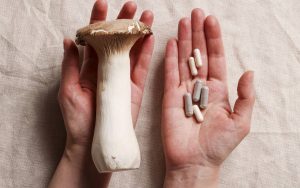Is Peppermint Tea Good for You? A Comprehensive Look at the Benefits
Peppermint tea is one of the most popular herbal teas consumed worldwide. Derived from the peppermint plant, this refreshing and invigorating tea has a long history of medicinal use for a variety of health conditions. As research continues to reveal more about the unique health components found in peppermint, there is growing evidence that drinking peppermint tea regularly can provide a number of benefits.
An Overview of Peppermint Tea
Peppermint tea is made from the leaves of the peppermint plant, a hybrid of watermint and spearmint. The active ingredient in peppermint is menthol, which provides its distinctive minty flavor and cooling sensation. Dried peppermint leaves are used to make a light, caffeine-free herbal infusion with a fresh, slightly sweet taste.
Peppermint tea has been used for centuries as a home remedy to treat digestive issues, respiratory problems, headaches, and more. Today, it remains a popular natural treatment for irritable bowel syndrome (IBS), upset stomach, colds and flu, menstrual cramps, and other conditions. Beyond its medicinal applications, peppermint tea is widely consumed around the world simply for its refreshing taste and soothing effects.
The Beneficial Compounds Found in Peppermint Tea
Scientific studies have identified a number of compounds that contribute to the health benefits of drinking peppermint tea:
- Menthol – This primary compound gives peppermint tea its minty flavor and cooling sensation. It also has analgesic, anti-inflammatory, and decongestant properties.
- Flavonoids – Peppermint contains antioxidant flavonoids such as hesperidin and eriocitrin. These help combat free radicals that can damage cells.
- Rosmarinic acid – This phytochemical has antioxidant, anti-inflammatory, antimicrobial, and anticancer effects.
- Tannins – Peppermint tea contains tannins that have antibacterial and antiviral properties.
- Eugenol – This natural compound has pain-relieving and anti-inflammatory benefits.
- Phytochemicals – Numerous plant-based chemicals contribute to the medicinal effects of peppermint tea.
As a naturally caffeine-free herbal tea, peppermint can provide health advantages without the stimulant effects and drawbacks of true teas. The unique combination of menthol, flavonoids, and other beneficial plant compounds offers a range of protective and therapeutic properties.
Health Benefits of Drinking Peppermint Tea
Research has shown that drinking peppermint tea can benefit several aspects of health. Here is an overview of some of the top evidence-based ways it may enhance your wellbeing:
May Ease Digestive Discomfort
Peppermint contains menthol, which helps relax intestinal smooth muscle. This can relieve discomfort associated with irritable bowel syndrome (IBS), bloating, gas, diarrhea, and cramps. Studies indicate peppermint oil capsules can reduce IBS symptoms. The menthol in peppermint tea may have similar effects when consumed regularly.
Could Aid Respiratory Issues
Inhaling peppermint vapors has been shown to open airways and act as a decongestant. Drinking the tea may offer similar benefits. Peppermint contains anti-inflammatory compounds that help relieve sore throats and coughs associated with colds and flu. Applying peppermint essential oil to the chest has also been found effective against respiratory infections.
May Relieve Headaches
Research suggests applying peppermint oil to the temples and forehead can reduce headache pain. This is attributed to the cooling sensation of menthol, which helps constrict blood vessels and alleviate pressure. Drinking peppermint tea produces a similar cooling effect, which may help relieve tension headaches when consumed regularly.
Helps Improve Energy Levels
The invigorating aroma of peppermint has been shown to boost mental focus and physical energy. Peppermint tea provides an alternative to coffee for increased wakefulness and improved task performance, without any caffeine. Drinking it in the morning or when feeling tired can provide an energizing lift without side effects.
May Reduce Stress and Anxiety
Inhaling peppermint essential oil has been found to reduce anxiety and stress levels. Peppermint tea contains many of the same natural compounds and can have a similarly calming neurological effect. The tea provides a soothing ritual that signals relaxation, helping you unwind.
Contributes Antioxidants to the Diet
Peppermint contains a wide array of antioxidant compounds, including gallic acid, luteolin, and rosmarinic acid. These help neutralize free radicals that can damage cells and lead to disease. Adding antioxidant-rich peppermint tea to your diet helps boost your intake of cell-protecting nutrients.
Easy to Incorporate Into Any Diet
Peppermint tea is naturally caffeine-free, calorie-free, and sugar-free, making it easy to add to a healthy diet. It can be safely consumed at any time of day and doesn’t come with the drawbacks of coffee or energy drinks. Enjoy a cup of steaming peppermint tea first thing in the morning, after meals, or before bed for healthy hydration.
Potential Side Effects of Peppermint Tea
Peppermint tea is generally well tolerated with minimal side effects in most healthy adults. However, some things to keep in mind include:
- It may exacerbate heartburn and gastroesophageal reflux disease (GERD) in some individuals. If you experience this reaction, avoid drinking it.
- Allergic reactions are rare but possible. Discontinue use if you notice signs of an allergy.
- It can interact with certain medications, including those for heart conditions and antibiotics. Talk to your doctor if you take any prescription medications.
- Excess consumption may cause headaches and flushing in some sensitive people. Drink in moderation.
As with any herbal product, consult your doctor before incorporating peppermint tea into your health regimen if you have any medical conditions or take medications. Observe your individual response to determine the optimal amount to drink.
How to Make Fresh Peppermint Tea at Home
Making a invigorating cup of fresh peppermint tea at home is quick and easy:
- Start by heating 8-12 ounces of water just short of boiling. Do not let it come to a full boil.
- Place 1-2 teaspoons of dried peppermint leaves into a tea ball, strainer, or infuser.
- Put the leaves in a mug and pour the heated water over them.
- Allow to steep for 3-5 minutes, adjusting the time to achieve your preferred strength.
- Remove the leaves or strain them before drinking.
- Customize your cup of tea with a squeeze of lemon juice, a touch of honey, or other natural flavor additions as desired.
- Sip and enjoy the refreshing mint infusion slowly to receive the full benefits.
Drink 2-3 cups per day to take advantage of peppermint tea’s health properties. Store any unused dried leaves in an airtight container away from heat, moisture, and light.
Frequently Asked Questions About Peppermint Tea
Here are answers to some common questions about peppermint tea:
Is peppermint tea caffeine-free?
Yes, peppermint tea is naturally caffeine-free. It is an herbal tea made from the leaves of the peppermint plant, not a true tea that contains caffeine like black, green, or white tea. Peppermint tea provides a stimulating sensation from its menthol content, not caffeine.
What is the best time to drink peppermint tea?
Peppermint tea can be enjoyed at any time of day. Some find it soothing before bedtime, while others prefer it first thing in the morning or as an after-meal digestive aid. Listen to your body’s needs and drink it when you will benefit most. Avoid drinking it close to bedtime if it tends to make you more alert.
How much peppermint tea should you drink per day?
There is no official recommended daily amount, but most experts suggest limiting intake to 2-3 cups per day. Drinking more than this could potentially cause side effects like heartburn or headaches in some individuals. Start with one cup daily and gradually increase to find your ideal amount.
Is it safe to drink peppermint tea everyday?
Yes, drinking peppermint tea in moderation daily is generally recognized as safe by herbal medicine practitioners. There is little risk of toxicity or overdose. However, some people may experience heartburn or allergic reactions with regular heavy use. Monitor your personal tolerance level.
Can peppermint tea help you sleep?
Some find the ritual of sipping a warm cup of peppermint tea before bed helps them relax and fall asleep faster. However, menthol’s stimulating effects may make it more difficult for others to drift off. Avoid drinking it close to bedtime if you experience any sleep disruptions.
The Bottom Line
With its fresh minty flavor and stellar nutrient profile, peppermint tea is ahealthy and delicious beverage choice any time of day. Regular consumption can provide natural relief for digestion, respiratory issues, headaches, and more while supplying antioxidants essential for wellness. Drink 2-3 cups per day to leverage its unique health benefits. While side effects are rare, observe your personal tolerance, and check with your doctor if you have any medical conditions or take medications. So brew yourself a steaming cup of refreshing peppermint tea and drink in its manifold benefits today.




